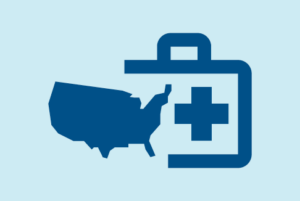Many Americans are indicating increased mental health concerns resulting from economic hardship and social isolation caused by the COVID-19 pandemic. On Jan. 19, the U.S. Department of Health and Human Services and the Office of the Surgeon General — in collaboration with the National Action Alliance for Suicide Prevention — released The Surgeon General’s Call to Action to Implement the National Strategy for Suicide Prevention, a report that outlines the steps for reducing suicide rates and helping improve resilience. Its goal is to broaden perceptions of suicide, who is affected, and the many factors that can affect suicide risk.
The report, which is intended to expand the national narrative to include the environmental and individual factors contributing to suicide, summarizes the protective factors that can help prevent suicide:
-
Help other people build life skills (e.g., coping, problem solving) and resilience
-
Increase social connectedness and support
-
Identify and support people at risk
-
Support lethal means safety
-
Support access to effective care
-
Seek help, support, and care when experiencing suicidal thoughts
-
Support individuals who have been affected by a suicide attempt or death


